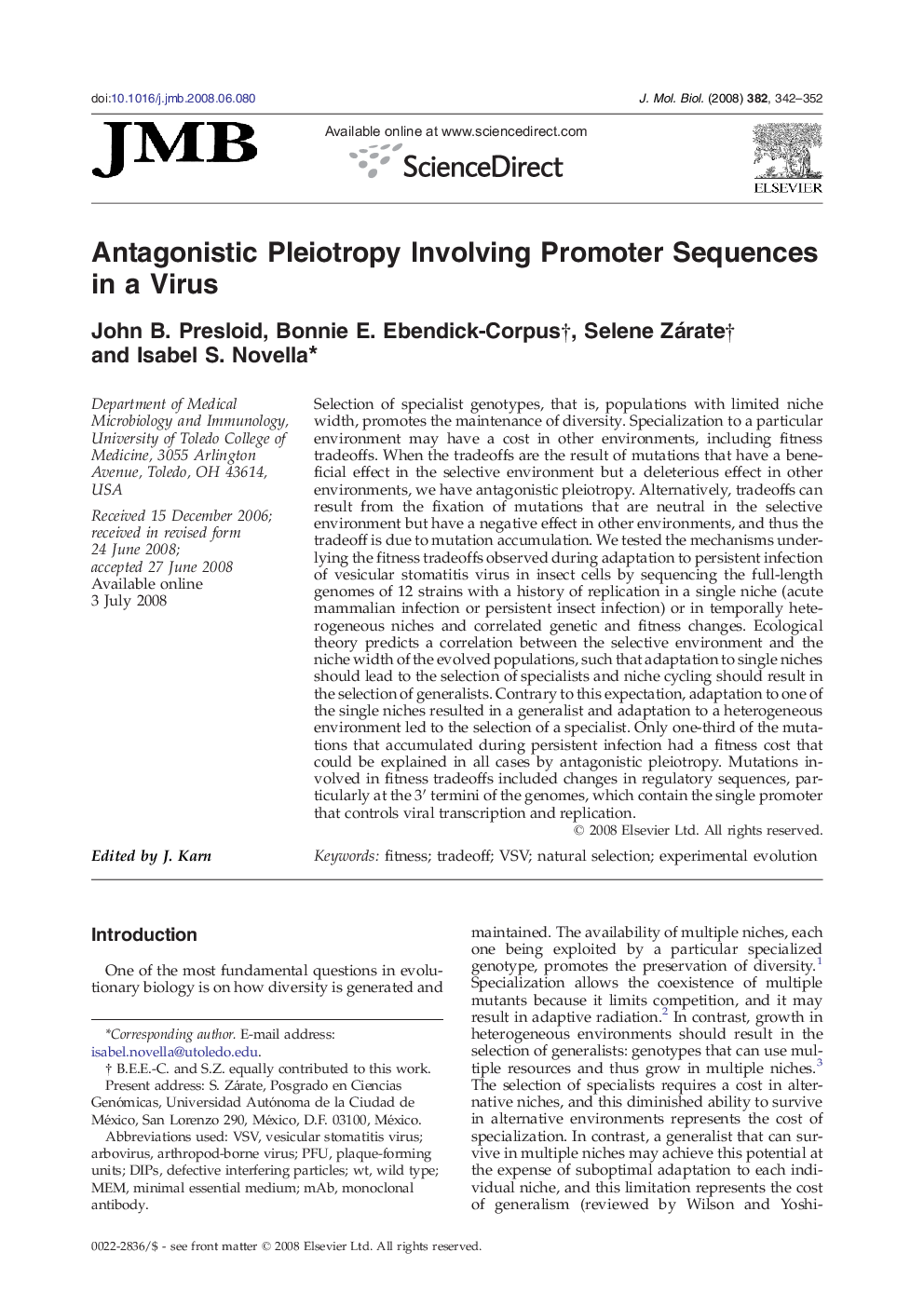| Article ID | Journal | Published Year | Pages | File Type |
|---|---|---|---|---|
| 2187023 | Journal of Molecular Biology | 2008 | 11 Pages |
Selection of specialist genotypes, that is, populations with limited niche width, promotes the maintenance of diversity. Specialization to a particular environment may have a cost in other environments, including fitness tradeoffs. When the tradeoffs are the result of mutations that have a beneficial effect in the selective environment but a deleterious effect in other environments, we have antagonistic pleiotropy. Alternatively, tradeoffs can result from the fixation of mutations that are neutral in the selective environment but have a negative effect in other environments, and thus the tradeoff is due to mutation accumulation. We tested the mechanisms underlying the fitness tradeoffs observed during adaptation to persistent infection of vesicular stomatitis virus in insect cells by sequencing the full-length genomes of 12 strains with a history of replication in a single niche (acute mammalian infection or persistent insect infection) or in temporally heterogeneous niches and correlated genetic and fitness changes. Ecological theory predicts a correlation between the selective environment and the niche width of the evolved populations, such that adaptation to single niches should lead to the selection of specialists and niche cycling should result in the selection of generalists. Contrary to this expectation, adaptation to one of the single niches resulted in a generalist and adaptation to a heterogeneous environment led to the selection of a specialist. Only one-third of the mutations that accumulated during persistent infection had a fitness cost that could be explained in all cases by antagonistic pleiotropy. Mutations involved in fitness tradeoffs included changes in regulatory sequences, particularly at the 3′ termini of the genomes, which contain the single promoter that controls viral transcription and replication.
